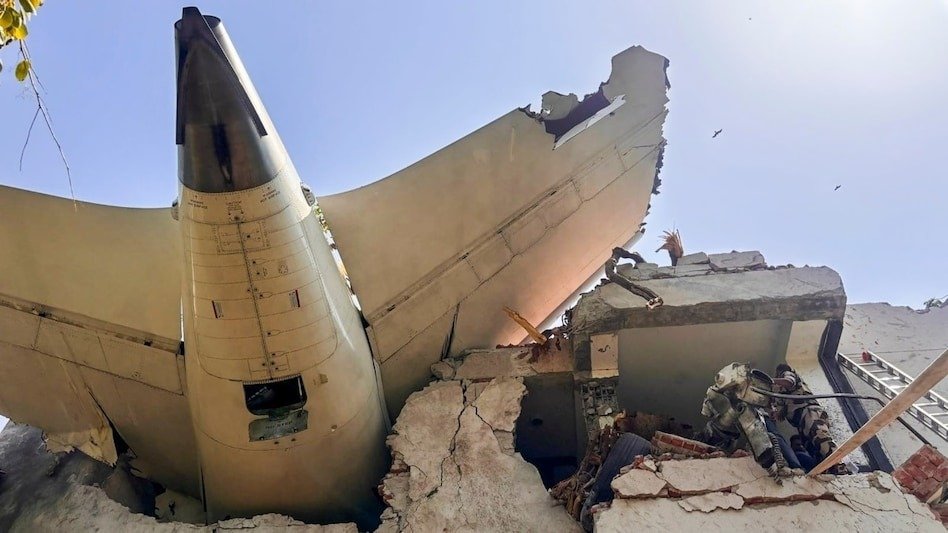New Delhi: The report on the tragic Air India flight AI-171 accident that occurred on June 12 this year has been released. The Boeing 787 Dreamliner, operating from Ahmedabad to London, crashed into a college building just moments after takeoff. Of the 241 people onboard, 240 lost their lives, and only one person survived.
According to the report, there was no operational error in the airline’s functioning. The Aircraft Accident Investigation Bureau (AAIB), in its preliminary report released in July, had already indicated that there was nothing wrong in Air India’s operations and that no changes were required in its existing procedures.
Air India CEO and Managing Director Campbell Wilson stated, “We are cooperating with the investigators, although we are not directly part of the investigation, which is being conducted under government supervision. The interim report suggests that there was no fault in the aircraft, engines, or operations. Like everyone else, we too await the final report. If there is anything to learn from it, we will certainly do so. For now, our focus remains on extending every possible support to those affected.”
The AAIB’s preliminary report, released on July 12, revealed that fuel supply to both engines stopped shortly after takeoff. Both fuel control switches were accidentally moved to the cutoff position within seconds. Although they were turned back on about 10 seconds later, by then the engines had already shut down.
The report further mentioned that one pilot questioned the other about why the switches had been turned off, but the second pilot denied doing so. It did not specify which pilot made the remark. The AAIB did not rule out the possibility of a technical malfunction and noted that experts in aviation medicine and psychology had been involved in the ongoing investigation.
Wilson remarked, “Anything that happens in the industry — whether with us or others — becomes a cause for introspection and a review of our procedures. The interim findings indicated that there was nothing wrong with the aircraft’s engines or operations that warranted change. However, we continuously look for ways to improve, to do better, and to keep learning.”
Speaking at a panel discussion during the Aviation India 2025 Summit, Wilson said, “This is our first public engagement with people in India since that tragic day. It was a deeply sorrowful time for the victims, their families, our company, and our staff.”
He added, “More than 600 of our staff members were on the ground in Ahmedabad. Through Tata Sons, we established a trust to support the affected families. We have provided ex gratia payments and are now working on final compensation packages. Both Air India and Tata remain committed to doing everything possible to assist the victims, no matter how long it takes.”
In the initial phase following the accident — over the first three months — Air India reduced its international flight operations using wide-body aircraft by around 15%. Wilson explained that this step was taken to allow extra time for enhanced safety checks and to ensure that pilots and engineers could operate with heightened vigilance.



